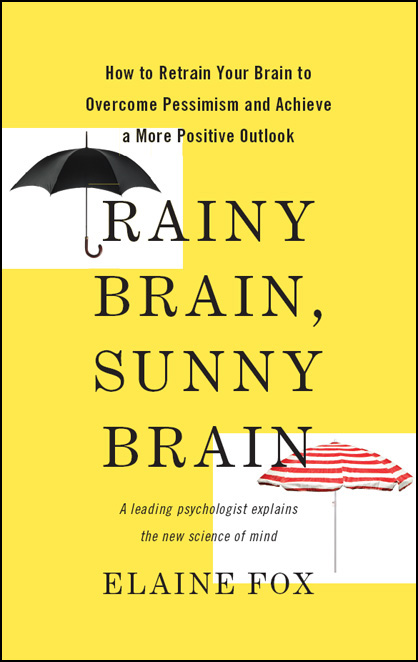
Rainy Brain, Sunny Brain
How to Retrain Your Brain to Overcome Pessimism and Achieve a More Positive Outlook
کتاب های مرتبط
- اطلاعات
- نقد و بررسی
- دیدگاه کاربران
نقد و بررسی

March 12, 2012
Drawing on a host of studies in neurobiology and genetics, as well as evolutionary and behavioral psychology, Fox explores the struggle between the parts of the brain associated with fear and pessimism (the amygdala) and those associated with pleasure and optimism. Head of the Centre for Brain Science at the University of Essex, England, Fox introduces readers to many new concepts from experimental psychology and recent research on neuroplasticity and neurogenesis. To demonstrate how malleable the mind actually is, she describes an experiment where mice placed in a stimulating environment “grew about three times more cells in their hippocampus” than mice in an ordinary environment. Another experiment revealed that stimulating the prefrontal cortex (the brain’s control center) can restrain the amygdala’s transmission of fear and anxiety. However, only in a concluding chapter does Fox deal, all too cursorily, with the subject of her subtitle, noting how techniques like mindfulness training can produce positive changes in brain activity and also help strengthen the body’s immune system. Fox uses a few anecdotes to good effect, and her book, while occasionally dry, is a welcome, if intellectually demanding, introduction to a key area of brain research. 16 b&w illus. Agent: Patrick Walsh, Conville & Walsh.

April 15, 2012
A psychologist looks at the influence that outlook--a tendency toward optimism or pessimism--can play in shaping the events in our lives. For the past 20 years, Fox (Head of the Department of Psychology and Centre for Brain Science/Univ. of Essex) has studied how "the diverse ways in which people interpret the world around them" are reflective of optimistic or pessimistic mindsets. She reports on experiments that differentiate between these mindsets in a variety of circumstances: the direction of a subject's attention to positive or negative images, brain scans that reflect the activation of different pathways in the brains, longitudinal studies that correlate personality type and life success. The author explains that the human brain has evolved two different circuits--the "rainy brain," which allows us to have a rapid response to perceived danger, and the "sunny brain," which directs us to pleasurable activities. Both are necessary to help us cope with our environment, but experiments show that the predominance of one over the other is observable in sunny-brained optimistic people compared with rainy-brained pessimists. The difference reflects the "delicate ebb and flow of circuits deep in our brain that shapes the contours and valleys of our personality"--e.g., while the pleasure circuitry of both optimists and pessimists are triggered by positive experiences, the activation will last longer for those with sunnier dispositions. Not only have optimists been shown to be happier, but they tend to be more successful in flexibly meeting life's challenges. While there may be genetic factors involved in the development of personality type, Fox suggests it is possible to adjust the "reactivity of these brain areas," although sometimes professional help is advisable. An insightful addition to the self-help bookshelf.
COPYRIGHT(2012) Kirkus Reviews, ALL RIGHTS RESERVED.

May 1, 2012
Fox (fellow, Magdalen Coll., Univ. of Oxford; Emotion Science: Cognitive and Neuroscientific Approaches to Understanding Human Emotions) brings to this book a wealth of knowledge and experience from her many years as head of the psychology department and Center for Brain Science at the University of Essex. She explains how the latest research in the areas of genetics, neurology, and psychology intersects and how it relates to optimistic versus pessimistic attitudes toward life. She illustrates how the portion of the brain responsible for fear is connected to pessimistic reactions and failure expectations, and this results, when activated, in both the chemical and the behavioral paralysis of a test subject's reactions. Likewise, pleasure, a sense of empowerment, and problem-solving abilities are enhanced by stimulation of the section of the brain responsible for optimism. VERDICT This is not a fluffy self-help book; in fact, while results from research studies are discussed, only near the end of the book are any practical suggestions offered to readers looking for ways to exchange their rainy brain for a sunny one. Fox's writing style will appeal to a lay audience with scholarly interests.--Crystal Renfro, Georgia Inst. of Tech Lib., Atlanta
Copyright 2012 Library Journal, LLC Used with permission.

























دیدگاه کاربران